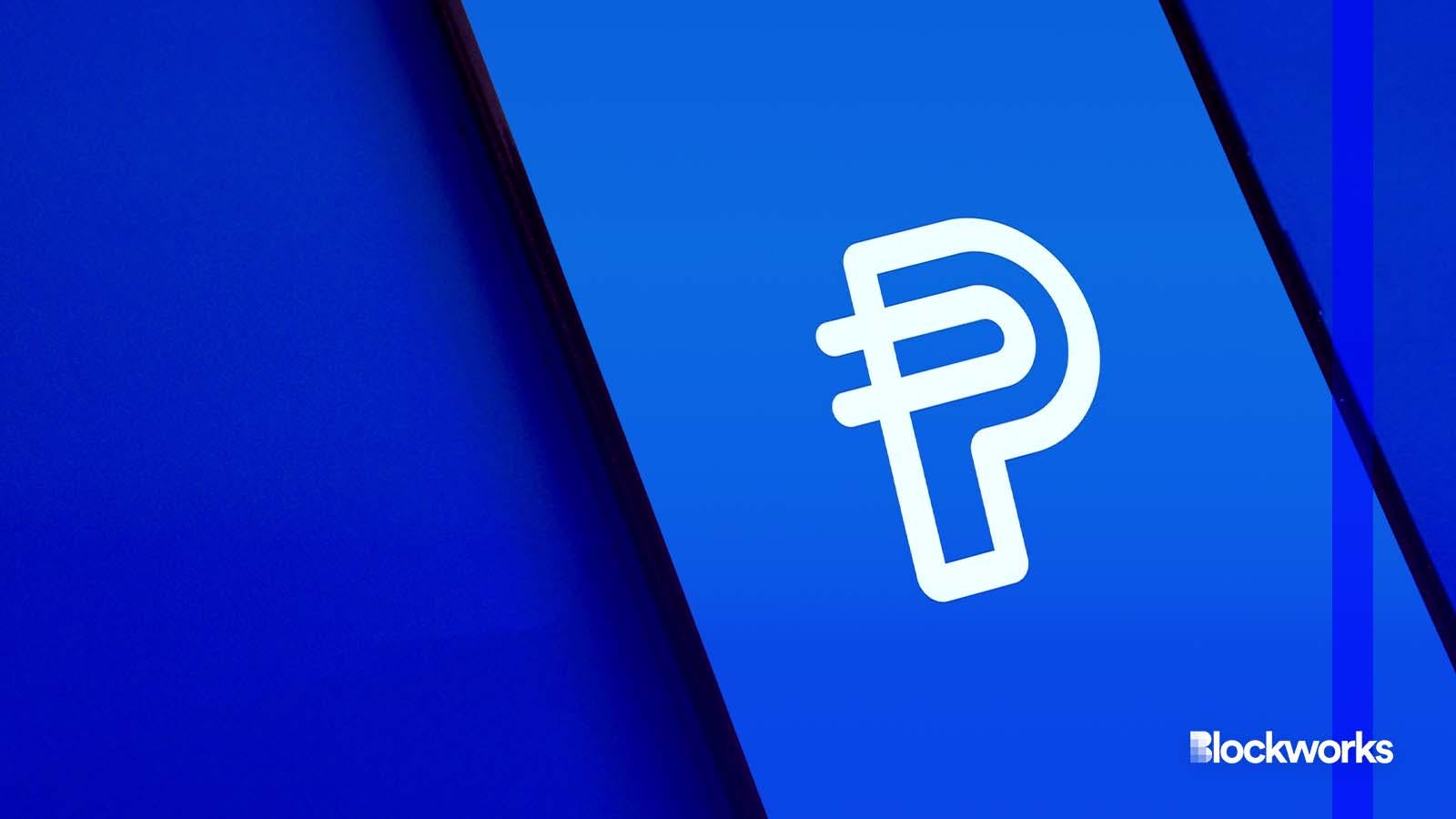PayPal stablecoin deployment on Aave sought by Paxos
As PYUSD sees middling adoption, Paxos is helping create DeFi markets for the stablecoin

MardeFondos/Shutterstock modified by Blockworks
Since launching in August, PayPal’s PYUSD stablecoin has struggled to gain a foothold in the top-heavy stablecoin sector. In a bid to boost PYUSD’s liquidity, the token’s issuer is beginning to venture into decentralized finance.
The lending protocol Aave is conducting a community temperature check on potential PYUSD onboarding into Aave’s Ethereum pool. The initial vote ends Jan. 11th and follows a PYUSD activation on the automated market maker Curve in late December.
The stablecoin’s August debut came with much fanfare, as the online payments giant became the first major financial institution to offer the price-pegged crypto instrument. Stablecoins grease the wheels of crypto markets, and PayPal seemed primed to expose some of its hundreds of millions of users to the blockchain.
But with stablecoin offerings from Tether and Circle already processing tens of billions of dollars per day, a nagging question remained: what is PYUSD’s use?
PayPal’s marketing language surrounding PYUSD suggests the firm would like the stablecoin to be used for payments and within the PayPal app, Clara Medalie, head of growth at DeFi research firm Kaiko, said. Medalie added that PYUSD’s deployment on centralized exchanges indicates the token is meant to be used for crypto trading, too.
There is no publicly available data on PYUSD’s use for payments within the PayPal app, so it’s impossible to know how successful the stablecoin has been on that front, Medalie said. PayPal did not return multiple requests for comment.
On exchanges, PYUSD’s adoption is growing but remains far behind its competitors. Data from CoinGecko shows PYUSD is the twelfth-largest stablecoin by market capitalization. Its circulation grew by 63% over the past month.
PYUSD still finds itself multiple decimal places away from volumes seen by Tether and Circle. Its roughly $17 million in trading volume over the past 24 hours was outstripped by erstwhile stablecoins Terra Classic and Binance USD.
PYUSD seems to be experiencing something of a stablecoin Matthew Effect: liquidity tends to go where liquidity already exists.
“It will be hard for Paypal to compete against USDT considering the majority of crypto liquidity is denominated in this stablecoin,” Medalie said. USDT currently accounts for roughly 70% of all stablecoins, according to DeFiLlama.
PYUSD is issued by Paxos, a New York-based crypto firm that formerly issued Binance’s BUSD stablecoin until the New York Department of Financial Services forced an end to the relationship.
In late 2023, Paxos began contracting with a digital asset firm named Trident Digital to boost PYUSD’s on-chain liquidity. The two firms previously worked together on Maker-related ventures, Trident co-founder Anthony DeMartino said.
Trident wrote and passed the PYUSD activation on Curve, and it is behind the current Aave proposal.
DeMartino called the Aave and Curve deployments “symbiotic” in that the two protocols are perceived to have different risk profiles. Demand for higher Curve yields will raise the PYUSD borrow rate on Aave, incentivizing lower-risk investors to deposit PYUSD on Aave, DeMartino said.
Were the Aave proposal to pass, “Paxos and other parties” would seed the pool with $5-10 million in liquidity, Trident wrote under its governance proposal.
Paxos did not return a request for comment. Its work with PYUSD has mostly flown under the radar of late outside of some SEC scrutiny in November. But as the stablecoin attempts to gather enough liquidity to compete with the entrenched giants, DeFi appears to at least present a starting point.
“It’s like starting a fire, right? This is just the kindling,” DeMartino said.
Get the news in your inbox. Explore Blockworks newsletters:
- The Breakdown: Decoding crypto and the markets. Daily.
- 0xResearch: Alpha in your inbox. Think like an analyst.






